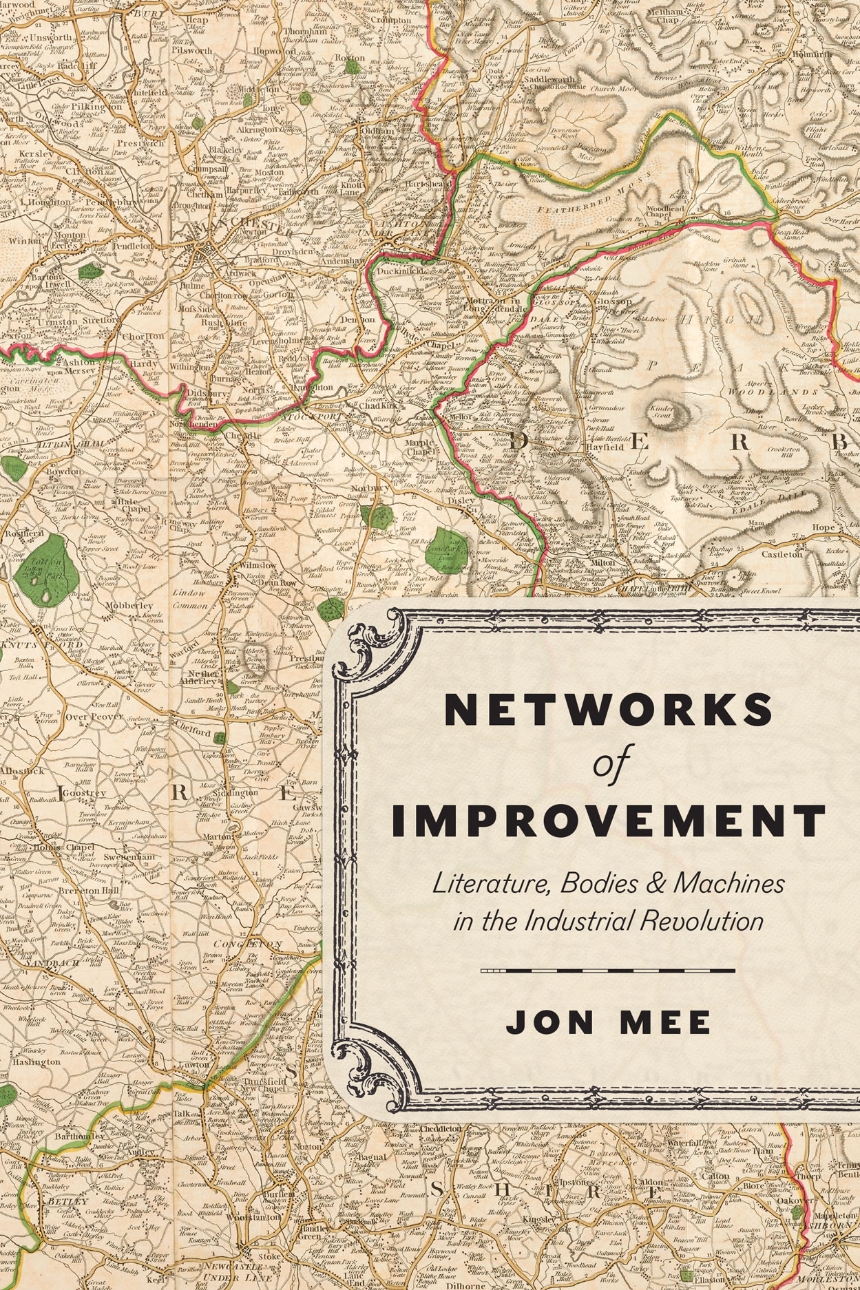Networks of Improvement
Literature, Bodies, and Machines in the Industrial Revolution
9780226828381
9780226828374
9780226828398
Networks of Improvement
Literature, Bodies, and Machines in the Industrial Revolution
A new literary-cultural history of the Industrial Revolution in Britain from the late eighteenth to the mid-nineteenth centuries.
Working against the stubbornly persistent image of “dark satanic mills,” in many ways so characteristic of literary Romanticism, Jon Mee provides a fresh, revisionary account of the Industrial Revolution as a story of unintended consequences. In Networks of Improvement, Mee reads a wide range of texts—economic, medical, and more conventionally “literary”—with a focus on their circulation through networks and institutions. Mee shows how a project of enlightened liberal reform articulated in Britain’s emerging manufacturing towns led to unexpectedly coercive forms of machine productivity, a pattern that might be seen repeating in the digital technologies of our own time. Instead of treating the Industrial Revolution as Romanticism’s “other,” Mee shows how writing, practices, and institutions emanating from these industrial towns developed a new kind of knowledge economy, one where local literary and philosophical societies served as important transmission hubs for the circulation of knowledge.
Working against the stubbornly persistent image of “dark satanic mills,” in many ways so characteristic of literary Romanticism, Jon Mee provides a fresh, revisionary account of the Industrial Revolution as a story of unintended consequences. In Networks of Improvement, Mee reads a wide range of texts—economic, medical, and more conventionally “literary”—with a focus on their circulation through networks and institutions. Mee shows how a project of enlightened liberal reform articulated in Britain’s emerging manufacturing towns led to unexpectedly coercive forms of machine productivity, a pattern that might be seen repeating in the digital technologies of our own time. Instead of treating the Industrial Revolution as Romanticism’s “other,” Mee shows how writing, practices, and institutions emanating from these industrial towns developed a new kind of knowledge economy, one where local literary and philosophical societies served as important transmission hubs for the circulation of knowledge.
288 pages | 10 halftones | 6 x 9 | © 2023
Literature and Literary Criticism: British and Irish Literature
Reviews
Table of Contents
Introduction
Part One: Networks and Institutions
1 Power, Knowledge, and Literature
2 The Collision of Mind with Mind: Manchester and Newcastle, 1781–1823
3 Improvement Redux: Liverpool, Leeds, and Sheffield, 1812–32
Part Two: Bodies and Machines
4 Three Physicians around Manchester
5 Hannah Greg’s Domestic Mission
6 An Inventive Age
7 Lives, Damned Lives, and Statistics
Acknowledgments
Abbreviations
Notes
Bibliography
Index
Part One: Networks and Institutions
1 Power, Knowledge, and Literature
2 The Collision of Mind with Mind: Manchester and Newcastle, 1781–1823
3 Improvement Redux: Liverpool, Leeds, and Sheffield, 1812–32
Part Two: Bodies and Machines
4 Three Physicians around Manchester
5 Hannah Greg’s Domestic Mission
6 An Inventive Age
7 Lives, Damned Lives, and Statistics
Acknowledgments
Abbreviations
Notes
Bibliography
Index
Awards
The Center for Eighteenth-Century Studies at Indiana University: Oscar Kenshur Book Prize
Shortlist
